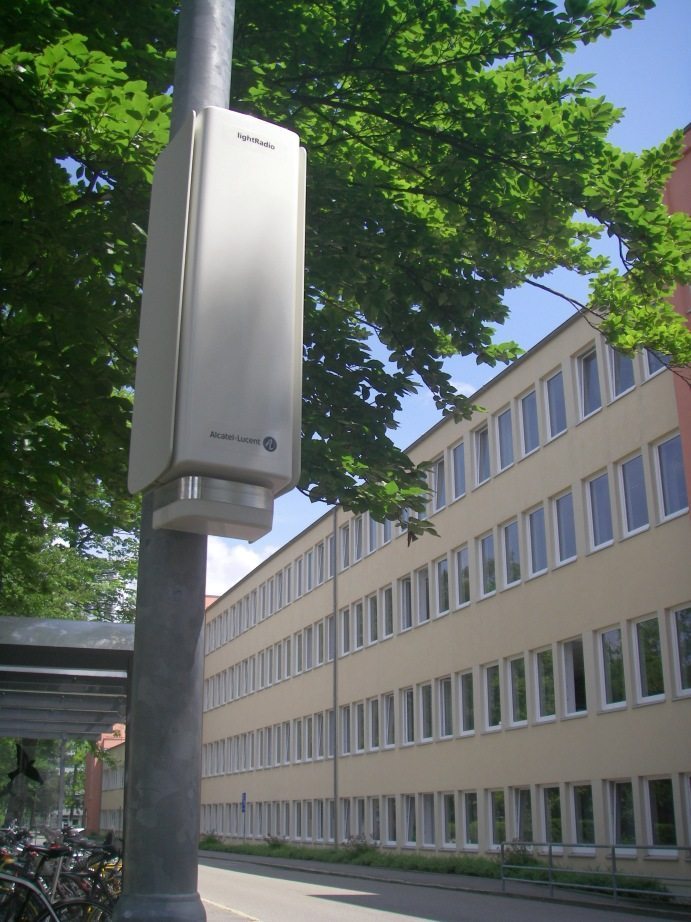For mobile operators considering small cell deployments, the questions are many: backhaul, logistics, handoffs, interoperability, and of course cost. Through a series of innovative partnerships, Alcatel-Lucent has created a system that it hopes can solve at least two of these problems: backhaul and logistics. The Metro Cell Express Site Certification program leverages the assets of companies that Alcatel-Lucent says are now part of the new wireless ecosystem.
“They’re advertising companies (billboards), they own infrastructure, backhual, street furniture (mailboxes, street signs, benches), and installers,” said Mike Schaebel, who heads up Alcatel-Lucent’s small cells business. “”Number one, what we’re doing is training all of them to be deployers of carrier grade equipment. … Number two, being in the program, we have access to all their inventory and their assets. So we’re able to cross the street furniture assets with the backhaul assets and answer some very fundamental questions: Where’s the site? What power solutions do we have? What’s the backhaul solution and who’s gong to support that site? When we’ve answered those questions we qualify them as a small cell site and then put that in the database and make that available for operators to leverage. That way we have a very simple standardized solution that operators can leverage to accelerate their time to market on small cells.”
Alcatel-Lucent named four of its nine inaugural partners today: Crown Castle, EdgeConneX, Knight Enterprises and Zayo. The company told RCR that the five partners it cannot name at this time are larger companies, one of which has the potential to deliver small cell sites across all of Europe.
Using the Alcatel-Lucent database, carriers can compare the geographic areas in which their networks are overwhelmed with the locations of certified small cell sites. They can also obtain a solid estimate of how much network traffic they would be able to offload by deploying a small cell at the nearest available site.
The company said that so far 600,000 sites have been certified, with about 55% in the U.S. and 45% in Europe. The database includes more than 150,000 serviceable on-net buildings, 325,000 street assets including outdoor advertising assets, 30,000 roof tops, 10,000 fiber to the building assets, and over 200,000 route miles of fiber in primary urban and suburban markets across the U.S.
Fiber is one of several backhaul solutions that Alcatel-Lucent is deploying for carriers. “We have an organic portfolio that can support just about any type of backhaul an operator may need to use, whether it’s a localized fiber, whether it’s a short hop using some Wi-Fi, for example Wi-Fi 5G backhaul ad-hoc mesh, we have that working, we’ve even deployed some satellite backhaul in certain remote cases,” said Schaebel. He declined to name the satellite backhaul providers, saying that these are companies that were already partnered with some of the carriers who have come to Alcatel-Lucent for small cell solutions.
“While no company alone can address the 4P’s necessary for small cell deployment –people, power, poles and ports — the group working together creates tens of thousands of qualified and available small cell sites, and we will further add to that by continuing to add members to this program,” said Schaebel.
Follow me on Twitter.

